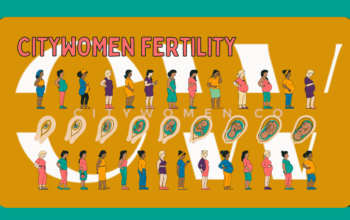
February 08, 2020 at 02:00AM by CWC
When it comes to visualizing yourself in your senior citizen years, chances are you hope to emulate someone like Betty White or Tao (thought of as the oldest living yogi). Read: old but thriving.
Here’s some good news on that front: life expectancy is (albeit very slowly) going up. According to new data from the Centers for Disease Control and Prevention (CDC), life expectancy at birth in 2018 (the latest stats are available) is 78.7, a slight increase from 2017’s life expectancy of 78.6. “What we’re seeing with life expectancy is that it did go up from 2017 to 2018, and it followed a period where life expectancy had been falling between 2014 and 2017,” says Robert Anderson, PhD, the chief of the morality statistics branch at the CDC’s National Center for Health Statistics. According to Dr. Anderson, two of the main reasons for the drop was a decline in deaths related to cancer as well as drug overdose, although he says deaths related to suicide (another big lifespan factor) are still on the rise.
Now the not-so great news. The American Heart Association recently released their own report, saying healthspan—aka the number of years a person can expect to live in relatively good health, free of chronic disease and disabilities of aging—is currently 66 years. That means there’s a 13-year gap between living and living well. But what’s contributing to that gap, and how does the U.S. compare to other countries’ healthspan? The answer is, as you can imagine, pretty complex.
In general, Robert Harrington, MD, who is president of the American Heart Association (AHA) and chairman of the department of medicine at Stanford University, says there are a few stand-out reasons for the disparity between lifespan and healthspan. “More Americans are obese, have diabetes, and other chronic diseases than at anytime in recent decades,” he says. “The onset of these diseases, in part influenced by social determinants of health, is occurring at younger ages, which means that many are at risk for having less optimal health for a larger portion of their overall lives.” In other words, Americans are being diagnosed with chronic, life-impacting health problems earlier than in the past, which results in less healthy years.
ADVERTISEMENT
ADVERTISEMENTKate Spade Autumn/Winter Sale |
Dr. Harrington says the AHA is committed to addressing this issue, with the goal to raise American healthspan to 68 by 2030. Some of the ways they’ll do this, he says, include investing in research related to heart and brain health as well as overall wellness, provide education to people on living healthy lifestyles, and using their role as as advocacy group to push for health-related policies at the local, state, and federal levels.
All of this is important, but Mark Hayward, PhD, a sociology professor and a faculty research associate at the Population Research Center, says addressing the healthspan-lifespan gap is a lot more complicated than educating and helping people live healthier lives.
While a healthspan of 66 and a lifespan of 78 may be the overall average in the U.S., Dr. Hayward says these numbers vary greatly based on race, socioeconomics, and what state you live in. “Foreign-born Hispanics in the U.S., for example, live longer than any other age group, but they spend an extraordinary longer time with disability—on average a third of their lives,” he says. (Disability, in this context, means “the difficulty or the inability to perform social roles and self-care tasks across any domain of life due to physical, sensory, emotional, or cognitive limitations.”)
Meanwhile, he says Black Americans have the lowest healthspan and lifespan of any population. “Disability comes really early to Black Americans [compared to other groups], and they also tend to live shorter lives,” he says. There are a lot of explanations for this, including an increased likelihood of poverty thanks to institutionalized racism. “Many [older Black Americans] were born and raised in the Jim Crow South, which many people forget. Roughly 80 percent of African Americans over 65 were born in the South in a racialized caste system.”
In addition to race and ethnicity, Dr. Hayward says state and local policies directly affect socioeconomic factors, which in turn affect healthspan. “Most people think healthcare is what affects healthspan, but there are a lot of other important factors,” he says. “Healthcare certainly matters, but so does having long-term education and investments in education for a population,” Dr. Hayward says, citing a study showing a strong correlation between secondary education and living well into old age. “Environmental law, minimum wage law, incarceration, all of this affects healthspan and life span,” he says.
Dr. Harrington agrees. “[The reasons for the discrepancy] are complex, but include the social determinants of health—things like access to healthy foods, clean air, proximity to areas for exercise—access of healthcare, affordability of medications, among many others,” he says.
All of these factors contribute to wildly varying health- and lifespan from state to state. “Some of the states in the U.S. mirror parts of Europe, like Sweden, in terms of how we compare for health- and lifespans. But other states are more comparable to third world countries. And that is not an exaggeration,” Dr. Hayward says. In Mississippi for example, life expectancy is 74, while in Hawaii, it’s 81, according to the most recent data. In terms of healthspan, the top state is Minnesota with 70.3 years, and the worst is West Virginia, with just 63.8 years.
Basically, health doesn’t happen in a vacuum, and isn’t just determined by your genetics or your own personal habits. Your environment, your community, your job, your race and how you are affected by systemic racism—all of that can help or hinder your overall well-being and health.
The issue is complicated to be sure, but what’s clear is that a healthy life expectancy goes far beyond healthcare. Moving into election season, it’s certainly something to keep in mind. Your life literally depends on it.
Here are some tips on living longer, no matter where you live. Plus, science-backed ways to extend your healthspan.
Author Emily Laurence | Well and Good
Selected by CWC

ADVERTISEMENT
ADVERTISEMENTUp to 30% off Gift Sets |







